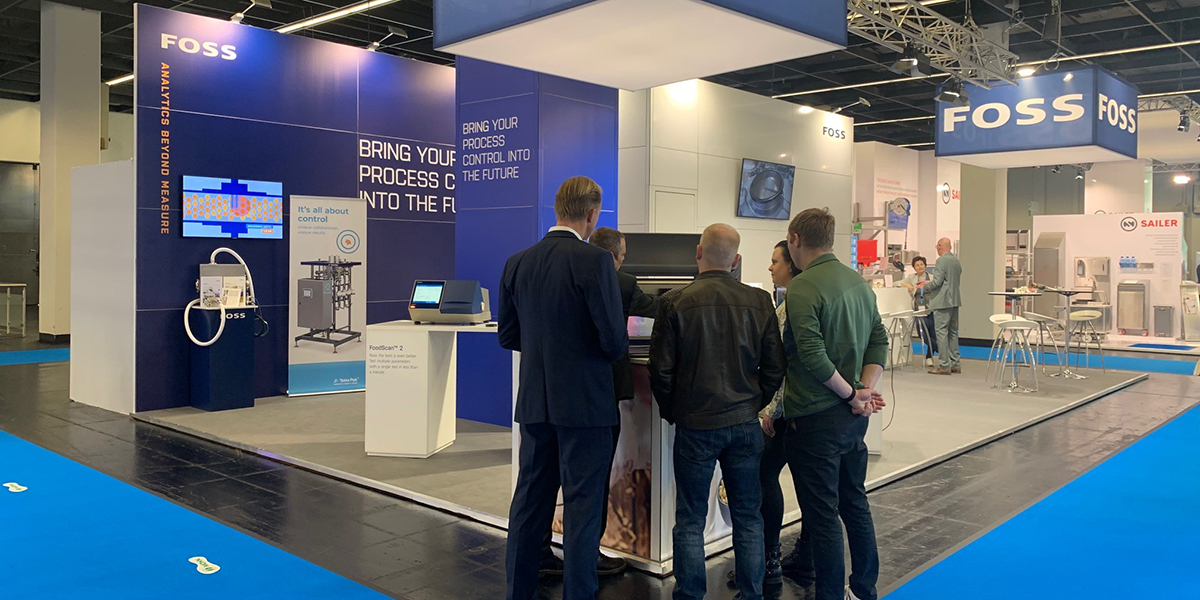Overview
In the globally connected agriculture and food production industries, ensuring supplier quality is paramount for us as end-consumers. Traditionally, ensuring supplier quality standards were met was, and still is for many, a time-consuming and labor-intensive task involving endless lists of suppliers, multiple Excel sheets, and significant administrative work. However, advancements in supplier-quality software solutions, such as FOSS IQX, are transforming this landscape.
What is Supplier Quality?
In the most basic of terms, Supplier quality refers to the process of ensuring that all materials and services provided by suppliers meet specified quality standards. This involves rigorous checks, audits, and approvals to prevent any issues that could affect the final product. All are vital as high supplier quality is crucial for maintaining product integrity, customer satisfaction, and compliance with regulatory standards. Poor supplier quality can lead to product recalls, legal issues, and damage to a company’s reputation – examples of which are plentiful!
The Traditional Approach: Excel Sheets and Administrative Overload!
The traditional approach to supplier quality management often involves maintaining extensive lists of suppliers in both physical forms through on-site documentation and basic Excel spreadsheets. This method was, and largely still is, not only time-consuming but also prone to errors and inefficiencies.
Relying on simple Excel sheets, Word documents, and everything in between for tracking supplier information and quality metrics, while helpful for many small producers and suppliers, has also led to significant administrative burdens. Countless files accumulated over the years may be scattered across various remote computers, some of which are no longer in use. Mistakes do happen, and the consequences can be disastrous. To avoid potential disasters, it’s crucial to consolidate all relevant information and ensure exclusive collaboration with clear and conforming suppliers.
On the other hand, staff resources who could be improving quality processes, aiding in supplier negotiations, or conducting audits are bogged down with paperwork. Paper-based systems’ inefficiency often results in delayed approvals, outdated product documentation, and incomplete risk assessments.
Imagine an auditor requesting a specific supplier onboarding a questionnaire from eight years ago, only to find the document filed away in a cabinet on the other side of the country – not very convenient or efficient!
Modern supplier quality management systems eliminate the need for paper-based processes. Platforms like FOSS IQX centralize supplier information, making it easily accessible and manageable. By freeing up staff from administrative tasks, companies can deploy their resources more effectively.
Trust the Process
Creating a detailed map of all suppliers helps in understanding the supply chain’s breadth and complexity. This map should include key details about each supplier, such as location, products supplied, and compliance status.
Regular supplier audits are essential for keeping high standards. Audits should evaluate suppliers’ quality management systems, production processes, and adherence to regulatory requirements. Supplier approval involves a thorough evaluation of their capabilities and the quality of materials they provide. This process ensures that only high-quality suppliers are part of the supply chain. By not having these audits, substances like allergens may appear in supplied materials. Failure to quickly identify and remedy can lead to serious health risks and legal repercussions.
The reality is there are no one-size-fits-all solutions for creating the perfect supplier quality plan. Each organization is different, adhering to various rules, regulations, customers, and suppliers. However, a good starting point is investing in dedicated staff for supplier quality management to ensure focused efforts to maintain high standards. These individuals can oversee the entire process from mapping to auditing and approving suppliers, aiming to reduce and mitigate potential issues and create a robust process from beginning to end.
Furthermore, effective supplier quality management requires close collaboration with procurement teams. Ensuring that procurement processes include quality checks and certifications helps maintain high standards of materials and services. Having a centralized system for supplier information provides a comprehensive overview of all suppliers, aiding in tracking compliance, performance, and any arising issues. Sharing supplier quality information across teams ensures that everyone is informed and aligned, allowing for quick problem resolution and consistent quality. Compliance with standards like ISO certifications is critical, and modern systems can help track and ensure compliance, making it easier to meet regulatory requirements.
All-in-all, a robust document management system ensures that all necessary documentation is readily available, including supplier certifications, audit reports, and quality metrics. Modern supplier quality management systems, such as FOSS IQX, provide robust tools for compliance and quality control. These systems offer features like automated checklists, digital documentation, and real-time reporting.
Software Solutions Save Time & Costs
The main takeaway from infusing software solutions into your supply management system is the elimination of administrative nightmares, labor wastage, and resource-intensive activities. Investing in a software solution like FOSS IQX can save time, reduce administrative burdens and costs, and enhance overall quality to the consumer. Software solutions provide power, oversight, and visibility across the entire supply chain. By using such a solution, companies can hire dedicated personnel, support rigorous audit and approval processes, and ensure a robust and reliable supply chain from start to finish.









